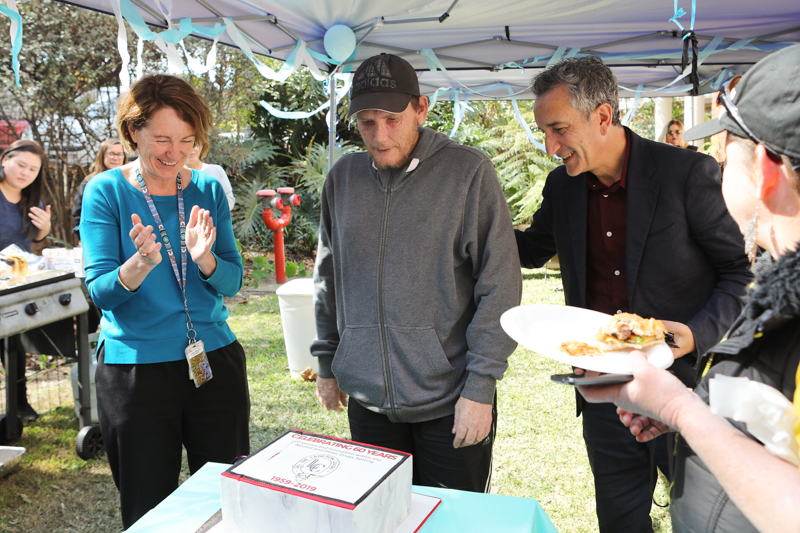60th celebrations at The Langton Centre
Australia’s first drug and alcohol centre, The Langton Centre, celebrated 60 years of pioneering treatment, training and research last week, at celebrations with Ministry of Health executives, local dignitaries and staff and patients, both past and present.
Opening the official event, Tobi Wilson, Chief Executive, South Eastern Sydney Local Health District (SESLHD), said the clinic was a state-wide exemplar of collaboration and effective partnerships, delivering genuine patient outcomes.
“It’s terrific how this centre has developed, changed and reflected the growing needs of the population,” Mr Wilson said.
“You’ve identified community needs and opportunities, and continued to evolve. We, as a district, can learn a lot from the approach taken at Langton.”
The event was attended by Daniel Maddedu, Director, Drug and Alcohol Services, Ministry of Health, former directors of The Langton Centre, and a host of SESLHD staff and guests from non-government organisations in the alcohol and other drug (AoD) field.
To mark the occasion, the NSW Ministry of Health announced the roll-out of the NSW Overdose Response with Take Home Naloxone (ORTHN) Project. ORTHN is a new program allowing credentialed health workers to dispense naloxone, a medication which temporarily reverses the effects of an overdose.
Professor Nick Lintzeris, Director of Drug & Alcohol Services, SESLHD – and a leader in ORTHN’s development – said this life-saving initiative was a fitting way to celebrate the pioneering work of Langton.
“The Langton Centre has a proud history of service delivery for people experiencing problems from their use of alcohol, prescription and/or illicit drugs,” Professor Lintzeris said
“And right now, people are dying at rates not seen in 30 years. It’s the second most common cause of death among Australians aged 25 to 44 and the third most common cause among those aged 15 to 24,” Professor Lintzeris said.
Among those in the latest AIHW data, are individuals using prescription opioids for conditions such as cancer or long-term pain management.
“Take-home naloxone will be a game changer in cutting opioid overdose rates,” Professor Lintzeris said.
Langton is Australia’s leading clinical institute in addiction medicine, responsible for a series of ‘Australian-firsts’: the first facility to offer the outpatient model for treatment of people with alcohol and other drug use issues; Australia’s first facility offering addiction medicine education to doctors; and among the first to ensure integrated care developed with consumer involvement is at the heart of all of its programs.
Established by a group abstaining from alcohol in the 1950s; Langton began with an inpatient rehab model of treatment and now lead the way nationally with a menu of innovative models of care.
Anni Ryan, Business Manager, The Langton Centre, said Langton was proud to be a leader in addiction medicine treatment and education.
“Each year the centre trains four addiction psychiatric registrars, about 10 medical students and around six graduate and/or student nurses. We host numerous training and professional development sessions and are always looking to improve the work that we do, and to translate what we’re learning through the research that we, and others, undertake,” Ms Ryan said.
Also announced on the day was the winner of this year’s Jennifer Holmes Scholarship of Nursing in Addiction Medicine, named after Jennifer, who has worked in this field for nearly 30 years.
